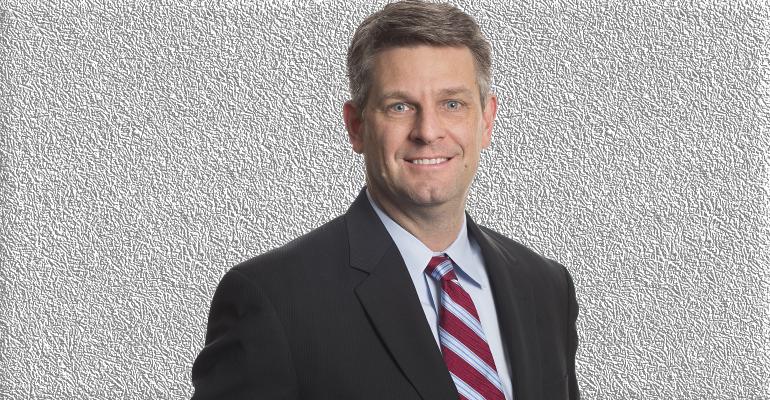F.L.Putnam Investment Management is getting into the corporate trust business. The $8.6 billion Massachusetts-based RIA is buying Darwin Trust Company, a New Hampshire-chartered trust business as it works to expand and add service capabilities that complement and support the firm’s overall growth.
Reflecting a larger industry trend, F.L.Putnam has been building out its menu of services since CEO Tom Manning took the helm in late 2015. At the time, F.L.Putnam was managing around $1.4 billion and primarily focused on asset management for institutions, foundations and endowments.
The century-old firm has since added financial planning services for wealthy individuals and families, acquired an investment consulting company focused on alternatives and invested in digital 401(k) planning capabilities. Insurance, estate and tax planning advice are also available, but product sales and document signing must still be handled by a third party. And, while there aren’t any prospects on the immediate horizon, Manning said adding a corporate retirement plan division is an area of interest.
"If we were to do that, it would be through an acquisition of either individuals that have those relationships and have built that type of capability or through an acquisition of a firm that already has an established capability in that area,” he told WealthManagement.com. “It’s one of those things we’re always mindful of and keeping our eyes out for that possibility.”
Recent research from WMIQ and investment banking firm MarshBerry found adding ancillary services beyond asset management and financial planning is becoming increasingly common among RIAs as clients abandoning the institutional space are presented with a proliferating variety of sophisticated service models.
More than half of 404 advisors surveyed over two weeks in December and January to learn how they’re strategizing for growth beyond mergers and acquisitions said they already offer insurance planning and risk management (77%), estate planning (71%), tax planning (56%), corporate retirement (54%), philanthropic planning (54%) and succession services and business planning (53%). Fewer than half are offering trust services (46%), digital advice (28%), concierge and lifestyle services (27%), investment banking (27%), and tax preparation (21%).
A little more than one-fifth of advisors said they’re interested in adding digital advisory capabilities, while succession services were cited by a smidge less. Philanthropic and concierge services were identified as areas of interest by 16% each, followed by tax planning with 14% of respondents.
The research found that trust services are the most likely to be outsourced, with 37% of advisors offering the services saying they rely on a third party to do so. Nearly a third farm out estate planning and investment banking, while a quarter outsource tax planning.
Firms like F.L.Putnam with long-term aspirations may be better off bringing certain ancillary services like trust in-house, according to MarshBerry’s Rob Madore. Firms seeking growth ahead of an eventual sale or merger might benefit more from outsourcing to avoid eventual redundancies and added overhead.
“Independent firms that want to stay independent have to be really clear within their business about what they insource and what they outsource and how it ultimately ties to their long-term plan,” he said. “If they’re building something to potentially join with a larger firm through acquisition or merger, outsourcing may make more sense. If they’re building to be ‘the thing’ and continue to grow independently and try to hit that 15% year-over-year mark, that’s when you start to look at bringing these things in-house.”
Many firms—of all sizes—are building proprietary services in-house from the ground up. Others are buying or investing in established providers they consider capable and compatible. Most, like F.L.Putnam, are doing some combination of all of the above.
Manning said his firm is interested in bringing most, if not all, ancillary services in-house. That potentially includes a digital advice offering for younger, tech-minded clients. Acquisition is generally preferred, but there is no pressure to close a deal. Rather, the focus is on trust and confidence in the talent or business being acquired.
"Our goal as a firm is to be a complete wealth advisor and to be able to offer those services to our clients,” he said. “But we’ve got to be really thoughtful about how and when and where we add them. We don’t want to just stick our foot in the door and try to do it. We want to do it with an established and well-thought-out approach that, hopefully, has already been built.
“We haven’t hired an investment banker to go out and try to find that type of opportunity for us,” he said. “If that’s going to happen, it’s generally going to come through the network that we already have, and it will be to bring on individuals that we know and trust and feel can really run that business on our behalf to make it another value-added service for clients who may want to participate in that.”
Recruitment is handled the same way, Manning noted. Rather than scouting based on need, he said F.L.Putnam is able to be more opportunistic and mentioned a wish list of industry talent the firm is waiting to snap up at the first opportunity.
Earlier this year, F.L.Putnam named its first chief people officer, the former global head of wealth management talent acquisition for BNY Mellon | Pershing, Molly O’Conner.
"It was the right person at the right time to bring into a very important position,” Manning said. "We have brought in a lot of people. We’re obviously in that process with Darwin Trust, we’ve been in discussions with a couple of others, and we expect that we’re going to be bringing on more people this year and for years to come.
“So, Molly is going to be that first point of contact for anybody that joins the firm, whether it be finding the right person to have a conversation about X or trying to understand how we do Y. She’ll work to make sure they get everything that they need to do their jobs effectively.”
With more than $6.5 billion now under management and another $2.1 billion in advised assets, F.L.Putnam has been named to WealthManagement.com’s RIA Edge 100 list for the second consecutive year. Derived from SEC data, the list identifies RIAs with leading industry growth rates that proactively maintain or improve client service levels through added talent and, increasingly related, more capabilities.
“We’ve seen some really great growth over the last year,” said Manning. “We're going to continue to look opportunistically at building the company and adding people and pieces that add value to the services that we already provide to our clients, whether it’s depth or breadth or ancillary services that we know our clients are interested in. And we’re just going to continue to march down that same path and be very thoughtful but open to opportunities as they present themselves.”
According to the WMIQ/MarshBerry research, there is no consensus among most RIAs as to why they’re adding services—and Madore said many times they’re being tacked on for free at the expense of revenue and, ultimately, firm value.
“Whether it’s an offensive, revenue-producing item or more of a value-add service on the defensive side, it requires an investment,” he said. “That investment could be solely time, or it could be time and capital, but firms need to consider how that investment will affect their ability to compete in the longer term.
“It makes sense for a firm like F.L.Putnam to bring trust in-house because they obviously want to remain their own company,” he added. “But there are a lot of nuances. Broadly, I would say that the clients a firm wants to serve going forward should dictate what services they offer. They should look at their book of business and see if there’s a need. If it’s a very strong need, they should probably look at building it. If it’s something that’s not across the entirety of their book or doesn’t provide that much additional value, it may be a better idea to partner.
“And, if you’re just doing it because you’re reading about it in an article like this one, you should probably just not do it at all.”



